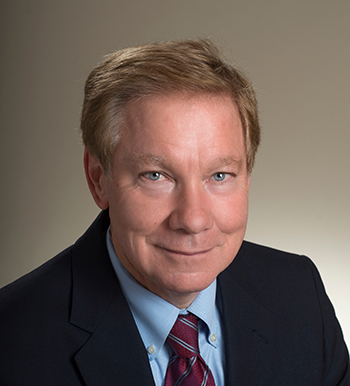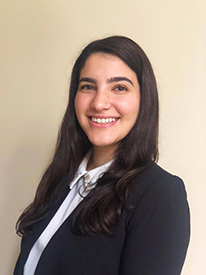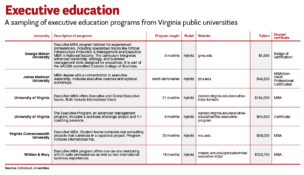The mentor
New Mason president hopes to inspire students, faculty
M.J. McAteer //June 30, 2020//
Gregory Washington, the new president of George Mason, “embodies our university,” says Thomas M. Davis, rector of the school’s governing Board of Visitors.
How? In just about every way possible, both personally and professionally, say Davis and others.
Mason’s stated mission is to provide “equal opportunity and an educational and work environment free from any discrimination.” On its way to fulfilling that goal, it has become the most racially diverse institute of higher learning in the Virginia system, and the most economically inclusive, too. Nearly a third of its 37,000-plus students qualify for Pell Grants, and 40% are the first people in their families to go on to higher education.

“We don’t consider ourselves an elitist university,” says Davis, the former Republican congressman and House Oversight Committee chairman who once represented most of Fairfax County in the U.S. House of Representatives. “We pride ourselves on who we accept, not who we reject.”
That parallels Washington’s own belief in “inclusive excellence,” the notion that diversity augments opportunities for academic achievement.
GMU’s eighth president, Washington took office on July 1, succeeding former state Secretary of Education Anne Holton.She had served as Mason’s interim president since August 2019, when Ángel Cabrera ended his seven-year tenure as GMU president to take over the leadership of his alma mater, Georgia Tech.
Washington is Mason’s first Black president, and like so many of GMU’s students, he was the first person in his family to go to college, courtesy of an ROTC program.
Setting a standard
Washington credits his impressive rise through academia to the mentors who believed in him early on. His fifth-grade teacher in New York City told him, “You are better than your behavior, and I’m going to make you better.”
“I came in a troubled student and left an honor student,” he recalls.
Although Washington says he was always a “curious kid” who planned to either pursue college or the military — the latter the path that many members of his family chose — he needed someone to show him how school, and science in particular, was relevant to real life.
That happened after his family relocated to Raleigh, North Carolina. A physics teacher at William G. Enloe High School spotted his potential. “She brought the subject to life,” says Washington, who recently came across a Facebook post from the teacher, asking her former students to share what they are doing as adults.
“I was blown away” by how many of her former students had successful careers, Washington says. That solidified his conviction that “an individual can have a profound impact on a person’s life. I’ve always wanted to be that person for others, to push them beyond what they thought was possible.”
Washington, 54, is a living example of going above and beyond expectations. After earning bachelor’s, master’s and doctoral degrees in mechanical engineering from North Carolina State University, he taught at Ohio State University for 16 years, before becoming the first African American to lead a school of engineering in the University of California system. At the Henry Samueli School of Engineering at UC Irvine, he worked to bring others the same opportunities, making a concerted push to diversify and expand both the faculty and the student body.
“He was able to recruit exceptional researchers and teachers,” says James Bullock, dean of the School of Physical Sciences at UC Irvine. “He set a standard that I want to emulate.”

Washington also notably improved the ability of community college students to transfer to UC Irvine, a situation analogous to GMU’s relationship with Northern Virginia Community College.

Dalia Hammouri, a biomedical engineering student and president of the UC Irvine Engineering Student Council, describes Washington as “super involved” and “hands-on. … He took his role as being more than just a dean,” she says. “When you can do what you say you value, that is the proof in the pudding.”
Research bona fides
By all accounts, Washington matches his commitment to expanding educational opportunities to nontraditional educators and students with that intangible known as charisma. “He is very well liked and good at lightening the mood and making you feel welcome,” Bullock says.
“You know when he is in the room,” Davis says. “He’s no wallflower. He’s a great communicator.”
Washington’s easy rapport with people served him well during a grueling three days of 7 a.m. to 7 p.m. interviews for the job of GMU president. “Greg,” says GMU Vice Rector James W. Hazel, “not only excelled in conversations with the [visitors] board, but with faculty, who were, for the first time, given input into the selection of the president. No matter what the audience, he was comfortable with them.”
Washington was also a top fundraiser at UC Irvine, not a minor skill for a university president to possess. Hazel says Washington was responsible for landing the largest gift in the California system, a $9.5 million donation from the Opus Foundation to go toward scholarships and support for STEM outreach. That funding helped Washington institute a STEM program that reached more than 2,500 students in the Orange County school system.
During his California tenure, Washington also helped oversee the construction of the largest building in the state university system, an engineering building that houses 150,000 square feet of space for cross-disciplinary research and collaboration in areas ranging from artificial intelligence, to machine learning and cybersecurity.
All these glowing attributes, however, would not have been enough to push Washington’s name to the top of a pile of more than 90 applicants and make him the unanimous choice of the GMU board if they weren’t coupled with the other essential element of his matchup with Mason: His outstanding academic and research bona fides, which sync seamlessly with the university’s emphasis on forward-looking technology.
“Mason is very good at STEM [science, technology, engineering and mathematics] education,” Davis says, and so is Washington, who has authored more than 150 technical papers, demonstrating his expertise in such areas as the modeling of smart materials and systems — “machines that think.” At UC Irvine, he spearheaded the development of the Horiba Institute for Mobility and Connectivity to advance next-generation mobility systems, such as driverless cars and vehicles powered by nontraditional fuel sources, just the kind of high-tech, public-private endeavor that is part of GMU’s mission.
Washington threw his hat in the ring to be president of GMU, he says, precisely because it is an R1 research institution, the highest designation awarded by the Carnegie Classification of Institutions of Higher Education. “Mason will be part of the work on technologies of the future,” he says, citing GMU’s new School of Computing at its Arlington campus and the university’s determined push into high-tech areas such as data science, artificial intelligence and adaptive materials.
Washington also intends to maintain a research lab at Mason where he can work with young faculty. “The research game is a difficult game,” he explains. “They are going to need as many mentors as possible.”
Opportunities and challenges
Working with Amazon.com Inc., which is projected to employ a staggering 25,000 people at its East Coast HQ2 headquarters under construction in Arlington, is on Washington’s to-do list as well.
“He had done his homework on Mason and recognized HQ2’s importance to the region,” Hazel says.
Amazon already has forged a special relationship with Virginia Tech, which is building an Innovation campus in Alexandria.
“Has there been a competition [among the local universities]? Yes,” Washington admits. “But no one institution can accommodate the needs of a 900,000-member company.” Washington knows the Tech Innovation Campus’ incoming vice president, Lance Collins, well and plans to work with him “to figure out ways to do this together.”
Of course, the coronavirus pandemic has posed enormous challenges to higher education in the past few months. “It’s a very different job now from when I took it,” Washington says.
The announcement of Washington’s selection happened on Feb. 24, shortly before COVID-19 seized the national consciousness, and Hazel says the search for a new GMU president “could have cratered if it had gone into March.”
COVID-19 certainly has added to the stresses of taking on this huge, new job for Washington. He had hoped to visit GMU a couple of times a week in the interim between being named president and taking office four months later. But with states putting quarantines into effect, he was able to visit Mason only twice before taking up the presidency — once to interview and the second time when he was introduced as the newly hired president. He and his wife, Nicole, sheltered in California and, due to the pandemic, have had difficulty finding a moving service for their relocation to Fairfax County, where they will live on campus.
As of late May, Washington said, the shape of Mason’s fall semester was still under discussion, but he doesn’t expect the in-class experience to go away. “There is the innate drive of students to be together,” he says. Nonetheless, “major aspects of higher education will be changed forever” and “virtual engagement” will be here to stay, he says.
“Education has been democratized globally,” he continues, putting universal access almost within reach of everyone. Conversely, the rise of nationalism around the world and the lack of a coordinated international strategy for dealing with COVID-19 demonstrates that science alone cannot solve the world’s problems.
“We need to communicate globally. We need to understand other cultures,” Washington says. “Now, more than ever, we will need the humanities.”
Subscribe to Virginia Business.
p



















